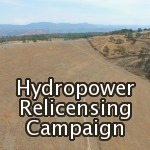Article from Stockton Recordnet.
http://www.recordnet.com/article/20150915/NEWS/150919775
By Staff and wire reports
Posted Sep. 15, 2015 at 6:05 PM
FRESNO — The nation’s largest irrigation district agreed to clean up contaminated water in California’s fertile Central Valley in a tentative deal announced Tuesday, settling a decades-old dispute with the federal government but angering Delta advocates in the process.
Westlands Water District will clean up water tainted by salt that has accumulated in soil from years of irrigation, general manager Thomas Birmingham said. Federal officials have failed for more than half a century to do the work that the district will undertake, he said.
The Department of the Interior said the deal will save taxpayers $3.5 billion.
Westlands did not say how much it would spend on the cleanup, but district officials said they agreed to fix the problem, whatever it takes. The U.S. Bureau of Reclamation estimated in 2007 that the cleanup would cost $2.7 billion.
Critics say the district and the U.S. Department of the Interior secretly forged the agreement that wipes away large amounts of the district’s debt and potentially gives it greater access to the state’s scarce water supplies through the overtapped Delta.
“In my opinion it’s a sweetheart deal for Westlands,” U.S. Rep. Jerry McNerney, D-Stockton, said Tuesday. “I don’t know enough of the details yet, but I’m suspicious the deal will give Westlands additional perks that it doesn’t have now.”
McNerney said he was briefed on the settlement Friday, but was not allowed to review it. The actual document has not been released. A Westlands spokeswoman said it will be made public today.
The settlement relieves Westlands of $350 million owed to taxpayers for its part in building the Central Valley Project, the system of canals that delivers water to providers as far south as San Diego.
It grants Westlands an indefinite water contract, rather than one that has to be renewed every two years. Farmers within the district also no longer will have to limit their farms to 960 acres.
In return, Westlands takes on responsibility for managing drainage and must retire at least 100,000 acres of farmland, three times less land than environmental advocates have called for. Also, water deliveries to Westlands would be capped at 75 percent of the district’s contract, though Westlands rarely receives that much water as it is.
Bill Jennings, whose Stockton-based California Sportfishing Protection Alliance is a longtime Westlands foe, said the government “gave away the house and firstborn and everything else to Westlands.”
“The government provided water to irrigate toxic soils that leach poisons into our rivers, and they wanted to get out from any liability, so they escaped,” he said. “Westlands wanted the water and wanted to get out from under the debt of having to pay for the Central Valley Project. They knew they weren’t going to do anything to stop the pollution. It’s a great deal for them.”
McNerney, who expects that Congress will approve the deal, said he is not assured that Westlands will fulfill its obligation to clean up the contaminated water.
The district supplies irrigation water to 700 family farms that grow everything from almonds to tomatoes on land in the San Joaquin Valley stretching from Firebaugh and Kettleman City. The district makes up a large part of Central California farming, which leads the nation in producing fruits, vegetables and nuts.
Rep. John Garamendi, D-Walnut Grove, who also was briefed, said the details he was presented are old. The settlement affects California’s farming industry and the details of the negotiations are too important to be hidden from view, he said.
“The Department of Interior should be whacked badly for the secrecy in this agreement,” Garamendi said.
Responding to critics, Birmingham said that negotiations were done in private but were not secret.
“They feel the need to attack anything that benefits Westlands,” Birmingham said. “Westlands, by doing this, is undertaking significant risks and obligations that we currently don’t have.”
The water district agreed to retire at least 20 percent of the 614,000 acres of farmland included in the district, which will limit the amount of federal water it can receive. In the past two years of drought, the district has received no federal water.
Federal officials will withhold water supplies from the district unless Westlands upholds its end of the bargain, Birmingham said. Critics say the deal gives the district priority over other customers that receive federal water, which Birmingham denies.
Said Birmingham: “That’s the biggest hammer the government could have to ensure Westlands fulfills the obligation.”









